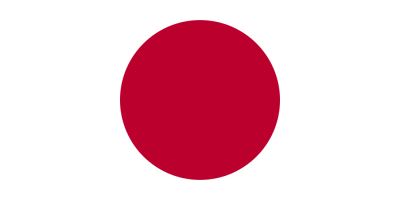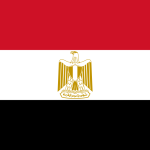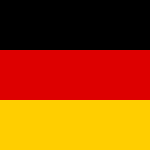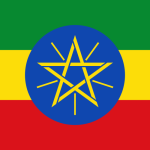Egypt flag color codes holds a special meaning for the country and its people. With its iconic red, white and black bands, the Egyptian flag has come to symbolize the sacrifice and pride of the nation. If you want to accurately display these colors in any website, design or art project, having the precise Egypt flag color codes is crucial. This guide provides the hex, RGB, Pantone, HSL, CMYK, HWB and NCOL values for the colors of the Egyptian flag. Whether you need to match the red tone for an Egyptian themed graphic or reproduce the flag’s black shade in print, these Egypt flag color codes will allow perfect color accuracy. By equipping yourself with the numbers behind the red, white and black on the Egyptian flag..
Table of Contents
What are the colors of Egypt flag?
The Egyptian flag consists of three equal horizontal bands of red, white and black.
The specific colors are:
- Red – This represents the period before the 1952 revolution. The red symbolizes the blood of those killed fighting for independence from 1919 to 1922 against the British.
- White – This represents the 1952 revolution itself which ended the monarchy and established an independent republic. White symbolizes the bright future after the revolution.
- Black – This represents the end of the oppression of the Egyptian people and reflects the darkness that proceeded the 1952 revolution.
So in summary, the three colors of the Egyptian flag are:
- Red
- White
- Black
Each color has a symbolic meaning related to Egyptian history and the struggle for independence. The red band at the top signifies bloodshed, the central white band represents the 1952 revolution, and the black band refers to the end of oppression.
Egypt flag color codes & Color Names:
RED
| Color Model | Values |
|---|---|
| HTML | #C8102E |
| HEX | C8102E |
| RGB | (200, 16, 46) |
| PANTONE | 485 C |
| HSL | (352°, 85%, 42%) |
| CMYK | (0%, 92%, 77%, 22%) |
| HWB | (352°, 0%, 22%) |
| NCOL | #B71421 |
WHITE
| Color Model | Values |
|---|---|
| HTML | #FFFFFF |
| HEX | FFFFFF |
| RGB | (255, 255, 255) |
| PANTONE | |
| HSL | (0°, 0%, 100%) |
| CMYK | (0%, 0%, 0%, 0%) |
| HWB | (0°, 100%, 0%) |
| NCOL | #FFFFFF |
BLACK
| Color Model | Values |
|---|---|
| HTML | #000000 |
| HEX | 000000 |
| RGB | (0, 0, 0) |
| PANTONE | |
| HSL | (0°, 0%, 0%) |
| CMYK | (0%, 0%, 0%, 100%) |
| HWB | (0°, 0%, 100%) |
| NCOL | #000000 |
YELLOW
| Color Model | Values |
|---|---|
| HTML | #FFCC00 |
| HEX | FFCC00 |
| RGB | (255, 204, 0) |
| PANTONE | 7406 C |
| HSL | (48°, 100%, 50%) |
| CMYK | (0%, 20%, 100%, 0%) |
| HWB | (48°, 0%, 0%) |
| NCOL | #FFD700 |
What is the meaning of colors in the Egypt flag?
The colors of the Egyptian flag represent the following symbolic meanings:
- Red – This band symbolizes the bloodshed and sacrifice in the struggle for independence, specifically the period from 1919 to 1922 against British rule. It honors those who died fighting for Egypt’s liberty.
- White – This central band represents the Egyptian revolution of 1952 which overthrew the monarchy and established a republic. White depicts the promise of a bright, peaceful future.
- Black – The black band represents the end of oppression for the Egyptian people after the 1952 revolution. It reflects the darkness of the pre-revolutionary period.
In summary:
- Red – Bloodshed and sacrifice in the fight for independence
- White – The 1952 revolution and hope for a prosperous future
- Black – The end of oppression after the revolution
The flag’s red, white and black symbolize the sacrifice to achieve independence, the revolution that brought change, and the end of subjugation for the Egyptian people. The colors speak to the nation’s struggle, rebirth and pride.
Explore More Flag Colors:
- Great Britain Flag Color Codes
- Kingdom of Serbia Flag (1882-1918) Color Codes
- Paraguay (Reverse) Flag Color Codes
- East Timor flag color codes
FAQs: Frequently Asked Questions:
What is the religion of Egypt?
The predominant religion in Egypt is Islam. The majority of Egyptians, approximately 90% to 95% of the population, are Muslims, predominantly of the Sunni branch. Islam plays a significant role in Egyptian society, culture, and politics, influencing various aspects of daily life, including social norms, legal systems, and religious practices.
What is the full name of Egypt?
The full name of Egypt is the Arab Republic of Egypt.
What kind of country is Egypt?
Here are some key characteristics of Egypt:
Republic: Egypt is officially known as the Arab Republic of Egypt and operates as a republic with a semi-presidential system of government. The President serves as the head of state and head of government, while the Prime Minister heads the Cabinet.
Cultural Heritage: Egypt has a rich cultural heritage that dates back thousands of years, with significant contributions to art, architecture, literature, and philosophy. Ancient Egyptian civilization, with its iconic pyramids, temples, and tombs, is one of the most well-known and influential civilizations in history.
Economic Profile: Egypt has a mixed economy with sectors such as agriculture, manufacturing, tourism, and services. The country has a diverse workforce and is known for its strategic location, Suez Canal, and access to the Mediterranean Sea. However, Egypt also faces economic challenges, including high unemployment, poverty, and income inequality.
Religious Diversity: Egypt is predominantly Muslim, with Islam being the dominant religion. However, there are also significant Christian communities, primarily Copts, as well as small minorities of other religious groups. Egypt historically has had a reputation for religious tolerance and coexistence.
Geopolitical Significance: Egypt is strategically located at the crossroads of Africa, the Middle East, and Europe, giving it geopolitical importance. The country has played a significant role in regional politics, diplomacy, and security, particularly in relation to conflicts in the Middle East and North Africa.
What is Egypt famous for?
Egypt is famous for several reasons, including:
Ancient Civilization: Egypt is renowned for its ancient civilization, one of the oldest in recorded history. The country’s iconic monuments, including the Great Pyramids of Giza, the Sphinx, and the temples of Luxor and Karnak, continue to fascinate people around the world.
Nile River: The Nile River, the longest river in the world, flows through Egypt and has been central to the country’s history, culture, and agriculture for thousands of years. The fertile Nile Delta supports agriculture and sustains millions of people.
Hieroglyphics and Ancient Writing: Ancient Egyptians developed one of the earliest writing systems known as hieroglyphics, consisting of intricate symbols and pictograms. The decipherment of hieroglyphics has provided valuable insights into ancient Egyptian civilization.
Islamic Architecture: Egypt is home to magnificent examples of Islamic architecture, including mosques, palaces, and madrasas. The historic cities of Cairo, Alexandria, and Islamic Cairo are known for their beautiful architecture and cultural significance.
Cultural Heritage: Egypt has a rich cultural heritage that encompasses art, literature, music, and cuisine. Traditional Egyptian cuisine features dishes such as koshari, falafel, and ful medames, while Egyptian music and dance are celebrated forms of cultural expression.
Tutankhamun and Egyptian Pharaohs: The discovery of the tomb of Tutankhamun in the Valley of the Kings in 1922 captured the world’s imagination and sparked renewed interest in ancient Egypt. The wealth of artifacts found in the tomb provided valuable insights into ancient Egyptian burial practices and royal life.
Suez Canal: Egypt is home to the Suez Canal, a vital waterway that connects the Mediterranean Sea to the Red Sea, providing a crucial shortcut for international maritime trade between Europe and Asia.
Tourism: Egypt is a popular tourist destination, attracting millions of visitors each year to explore its ancient monuments, cruise the Nile River, dive in the Red Sea, and relax on its beautiful beaches.
Is Egypt a rich or a poor country?
Egypt is considered to be a lower-middle-income country according to World Bank classifications. While Egypt has significant economic potential, it faces challenges such as high unemployment, poverty, income inequality, and reliance on external aid and remittances.
Egypt has a diverse economy with sectors including agriculture, manufacturing, services, tourism, and natural resources. However, economic growth has been uneven, and the country grapples with structural issues such as corruption, bureaucratic inefficiency, and barriers to investment.
Who ruled Egypt before Islam?
Some of the notable rulers and civilizations that controlled Egypt before the advent of Islam include:
Ancient Egyptian Civilization: Ancient Egypt is one of the oldest and most well-known civilizations in history, with a rich history that spanned thousands of years. The civilization was characterized by powerful pharaohs, monumental architecture, advanced science, and a complex religious belief system centered around gods and the afterlife. Some of the notable periods of Ancient Egyptian history include the Old Kingdom, Middle Kingdom, and New Kingdom.
Persian Empire: In the 6th century BCE, Egypt was conquered by the Achaemenid Persian Empire under the rule of King Cambyses II. Egypt became a satrapy (province) of the Persian Empire, and Persian control lasted for over two centuries until the conquest of Alexander the Great.
Hellenistic Period: Following the conquest of Alexander the Great in 332 BCE, Egypt came under Greek rule during the Hellenistic period. The Ptolemaic dynasty, founded by one of Alexander’s generals, Ptolemy I Soter, ruled Egypt for nearly three centuries. The most famous ruler of the Ptolemaic dynasty was Cleopatra VII, who famously allied with Julius Caesar and Mark Antony.
Roman Empire: In 30 BCE, Egypt was annexed by the Roman Empire following the defeat of Cleopatra and Mark Antony by the Roman general Octavian (later known as Emperor Augustus). Egypt became a province of the Roman Empire and remained under Roman rule for several centuries, experiencing significant cultural and economic influence from Rome.
Byzantine Empire: After the division of the Roman Empire, Egypt became part of the Byzantine (Eastern Roman) Empire. Byzantine rule lasted until the 7th century CE when Egypt was conquered by the Islamic Arab armies during the Islamic conquests.
What language is spoken in Egypt?
In addition to Arabic, there are also minority languages spoken in Egypt, including:
Egyptian Sign Language: Used by the deaf community in Egypt.
Coptic: Coptic is the liturgical language of the Coptic Orthodox Church and is still spoken by some members of the Coptic Christian community, particularly in religious contexts.
Nubian Languages: Spoken by the Nubian ethnic minority, primarily in the southern regions of Egypt, near the border with Sudan.
Bedouin Languages: Various Bedouin dialects are spoken by Bedouin communities in the Sinai Peninsula and other desert regions of Egypt.
What is Egypt’s currency?
The currency of Egypt is the Egyptian Pound, abbreviated as EGP. The symbol for the Egyptian Pound is “£” or “E£”.
What is the first language in Egypt?
The first language spoken in Egypt is Arabic. Arabic is the official language of Egypt and is widely used for communication in various domains, including government, education, media, and daily interactions. The majority of the Egyptian population speaks Arabic as their first language, with Egyptian Arabic being the most commonly spoken dialect.













